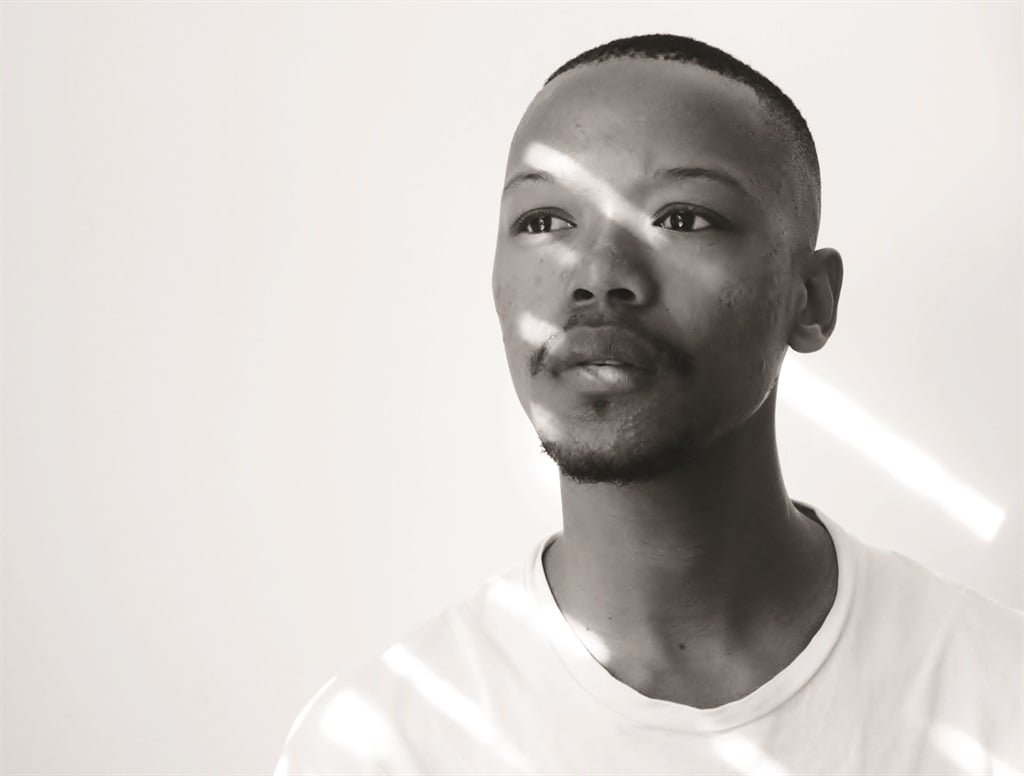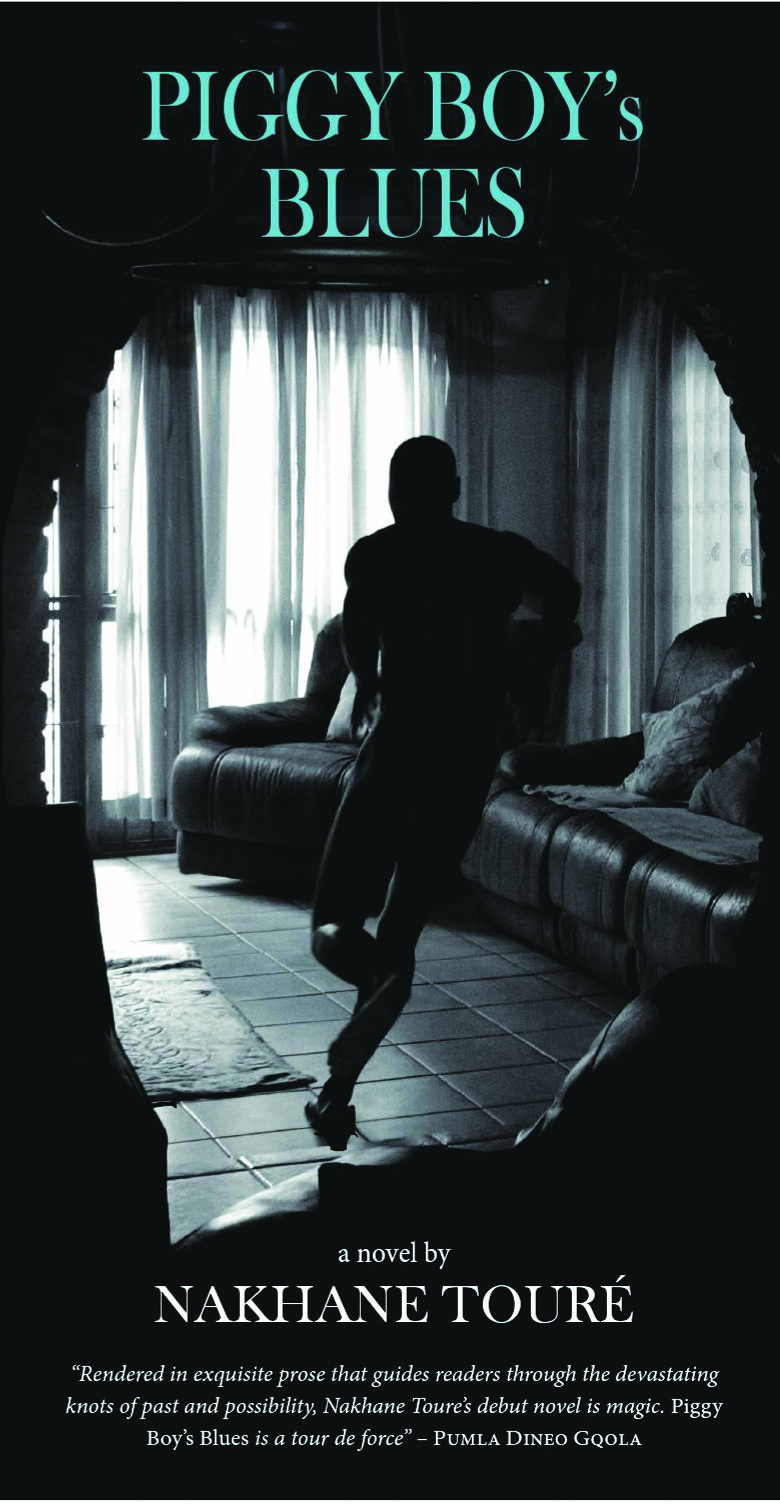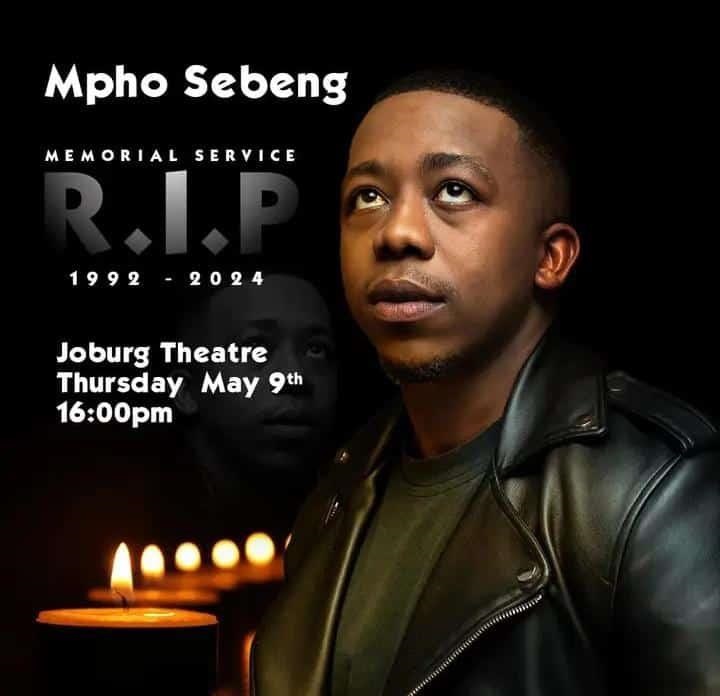
Nakhane Touré is nattily dressed in mostly navy, a trendy jacket insulating him from the winter chill.
He is weary but full of tales. Fresh from shooting his acting debut in a brave new local feature film, he headed to the Franschhoek Literary Festival last week.
The event was the site of conflict last year, when acclaimed novelist Thando Mgqolozana declared that he was boycotting lily-white festivals such as this. Touré thought deeply about his decision to attend.
His debut novel, Piggy Boy’s Blues – a sweeping rural and urban Xhosa drama with a conflicted gay narrator trying to find a place to belong – was on the long list for the Sunday Times Barry Ronge Fiction Prize.
The short list was announced at Franschhoek and Touré was there. So was apartheid-era state assassin Eugene de Kock.
How many of these literary festivals have you attended and what have your experiences been?
Three. The first one was Open Book, the second was Time of the Writer and now Franschhoek. Interesting polarities. I really enjoyed Time of the Writer. It was less about panel discussions and more about engaging with the people. Just going into spaces that black people live in and talking to them, whereas the other two were more about us writers sitting there and being wise.
How was black attendance at Franschhoek?
At Franschhoek, the only black people were the writers and labour, and one or two attending.
You obviously always dreamt and imagined you would be this writer attending festivals. How has it lived up?
What I have realised is that literary festivals are more ... how do I phrase this ... bitchy than music festivals. It is an interesting space to be in. It’s lit. When I think about it, it is because it’s people who consider themselves to be thinkers and they are all there to influence people with their thoughts and philosophies. ‘I am the best, my book is the best, you didn’t deserve to be long-listed ...’ And I’m new and I don’t know most of the people or the history, but it is very interesting listening and observing, and being disappointed by some of the people and impressed by others.
Do you feel pressure as a new black writer? Do you feel commodified by a white literary system?
Um, I think for the first few months or the first few weeks when the book came out, the literary world did not take me seriously as a writer – and maybe that’s just me internalising my own sh*t. Some people thought I was dabbling, but I did it because I had to write the book. It’s something I had always wanted to do.
And it was therapy as well.
Exactly. But now I am taken more seriously. Even so, there is, like, Masande [Ntshanga] and Songeziwe [Mahlangu] and Thando [Mgqolozana], and all these brilliant writers. What I find interesting is that each year there is that one black writer, that hot new writer right now. Someone said at Franschhoek, ‘This is Nakhane, he’s the star of the show at the moment,’ and I was like, ‘Am I? Really? No, I’m not. No one is, because there’s not just one.’
And transformation versus boycott? I mean, Thando was clear where he stood, that he was boycotting white festivals, but he also went on to help transform Time of the Writer and then he’s creating new black literary events. When you were invited to Franschhoek, was this a consideration?
Of course. I went to my publisher and to friends, and we had the conversation, which, I guess, at the moment is about boycotting versus infiltration of the system. I think both can coexist.
So you understand the call to boycott, especially from a more established writer?
Of course. And that’s part of the thing ... I don’t know how to say this without sounding glib. Um, now that I have experienced it personally, I really, really understand what he’s saying. I get it. Whereas before, it would have been following a leader for the sake of following a leader.
Have you always been on the side of the Fallists?
Of course. I still am. And I’m a fan boy of these people. I saw Wanelisa Xaba the other day and I’m like, ‘Omigod, omigod, she’s amazing!’ But also, what I want is for people to have their own experiences and for them to see it before making decisions, instead of just following what’s fashionable. You go there and some of your negative expectations are met and some of them are not, and then decide from a place of experience.
Did you experience a bonding of black writers? And did you experience white supremacy on fleek? You don’t have to mention names, but I believe at a dinner a big player in the industry was jaw-dropping.
There were, like, three black people at that dinner.
I believe that respected African authors were regarded as a novelty, that philosophers like Frantz Fanon were dismissed as depressing.
Yep. The word was ‘accommodate’: ‘Let’s accommodate our black writers.’ I said to Chris [his partner], ‘I guess he thinks I’m a good black.’ It was awful.
So did Franschhoek have spaces for decolonising minds to bond, to plot?
Yes, because black man, you are on your own. I have always felt like the outsider – in the music world, in the writing world – and maybe that’s just my sh*t, but being with writers such as Carol [Mohale] Mashigo and Nthikeng [Mohlele] was amazing. It was great meeting those people, having conversations with them and bonding. Sitting on the lawn and talking with like-minded people, or chatting to Moeletsi Mbeki and disagreeing with him.
Can transformation happen at Franschhoek?
Uh, it’s going to take a while.
Or do we need new book events?
Of course. Both. For me ... this is what I’m afraid of, of sounding like I have one leg here and the other leg there. I am afraid that in moments like this, people can easily be, like, ‘Pick a side or else.’ Maybe my politics is f*cked up, but allow me to grow into it.
And the Eugene de Kock incident? I know so much has been said, but you were there when he was asked to leave the party. For me, I understand the argument that he has kind of confessed, that he has served his time, that it is a question of how deep your forgiveness lies ...
Very shallow.
But attending a panel discussion is one thing. I’m told that De Kock went into the greenroom.
Ja, and he’s not a writer. We saw him in the greenroom, which is a space for writers to go and meet other writers, relax, decompress, prepare for panels, discuss things with other panellists, or sit there alone with a coffee or a glass of wine and just breathe. So it’s a safe space. At least, it’s supposed to be. And then he was at the short list announcement. But it was the personal that touched me more than the politics of it. That there were people in tears, a black publisher in tears. It’s the insensitivity – there were people there whose brothers, fathers, uncles he had killed. One person says, ‘I’ve forgiven him’, but that does not mean, for argument’s sake, that I’ve forgiven him. It was really problematic, bringing someone like him to a space where they knew there would be people who would be triggered by that.
Why do you think it became such a big media story?
Because it’s Eugene de Kock, A. And B, because he was asked to leave. And he left. Why did he leave? Who asked him to? And that opens up another can of worms. And there were other people saying, ‘Well, you guys went there, you went to Franschhoek, what did you expect? Of course you’re going to see Eugene f*cking De Kocks.’
Palesa Morudu had quite an interesting take: that if FW de Klerk was at Franschhoek, he certainly wouldn’t be asked to leave.
But that’s the story. De Klerk got the Nobel prize; Eugene took the flak. That’s not my problem. Get out. You still did those things.
I heard another white person say, ‘But a former MK [Umkhonto weSizwe] leader was on a panel. Why was that okay?’
It was a war. People were getting thrown off buildings, and we were told they were slipping on soap and dying. Sometimes violence is needed in retaliation. The apartheid regime was madly violent.
And history has a wrong side and a right side.
Yep.
Thando always says something like decolonisation isn’t a hugging festival.
No, it isn’t. It’s painful, and then some.
Finally, are you looking to do another book?
Yeah. I actually had an emotional meltdown earlier just talking to my publisher about it. Because I have the idea. I just don’t know if I have the ability to write it.
Why?
Well, I am always scared before I create anything. I was saying to her in a voice note this morning that before I write a song I pace around the room for at least two hours, thinking I cannot possibly do it, I know I don’t have the ability to sit down at the piano and write another song.
Omigod, how did I even write the last one? I know there’s a formula, but I don’t want to work within the formula, because it’s just going to be popcorn. How do I communicate something that’s honest and true? And everyone’s asking me, ‘When is the second one coming?’ I don’t know. In the next year, in the next two years, in the next seven years. I know that when it needs to come out it will come out, and I’ll have no say in it – and it’s the same with songs.




 Publications
Publications
 Partners
Partners









